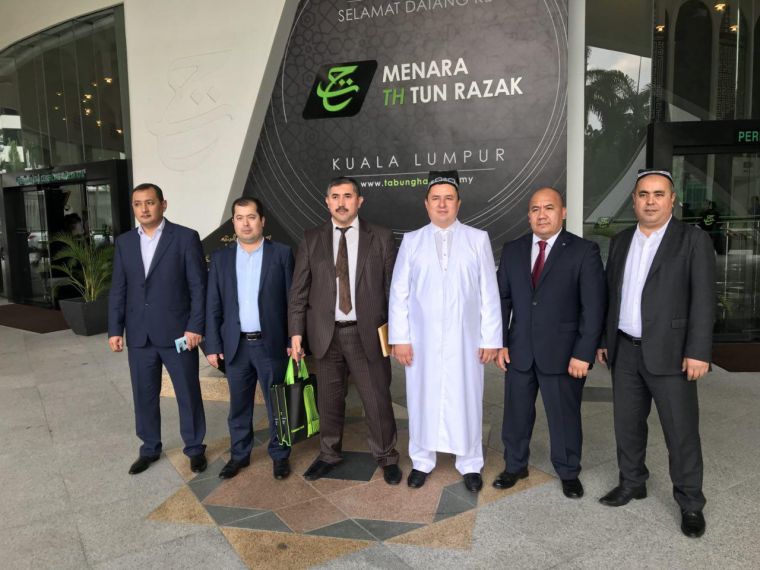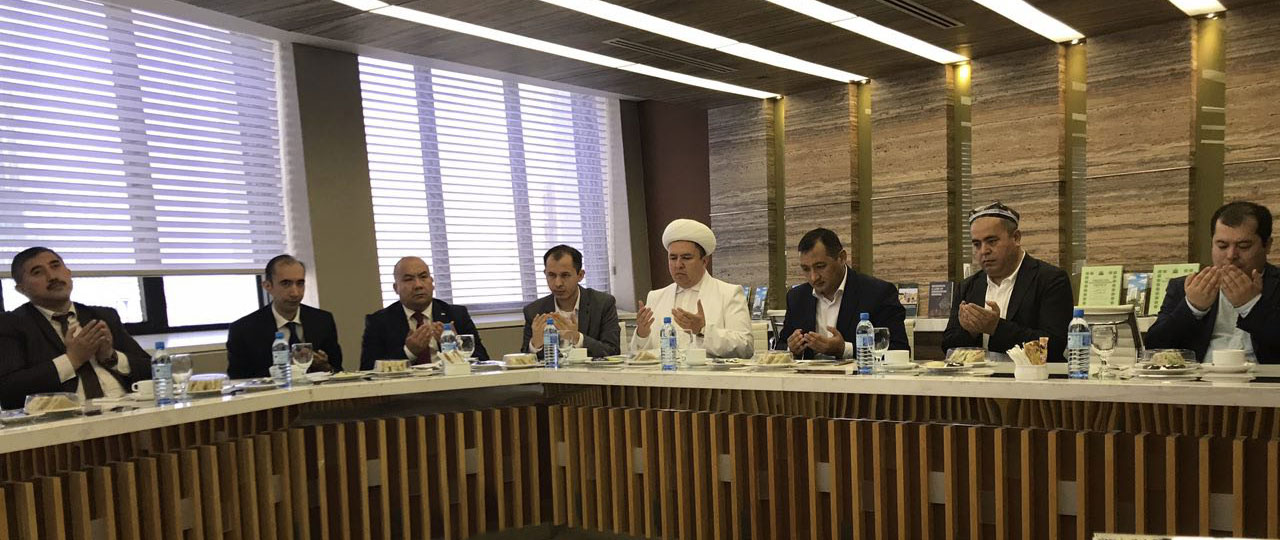Tashkent city



Uzbekistan is the place which the Creator loves a lot. There are countless scientists from this sacred land that people from all over the world want to see their resting places and the buildings they raised. Uzbekistan is considered to be one of the best countries for Ziyarat tourism.
Grand scale of works on promoting tourism is carried out by Committee on religious affairs under the Cabinet Ministers of Uzbekistan. For this reason the Delegation from Uzbekistan visited Malaysia. On December 13th they arrived in Kuala Lumpur international airport.
On December 14th the delegation met with the representatives from “Tabung Khaji” fund which specializes in haj issues. The delegation from our country presented gifts to Malaysian partners on behalf of Usmankhan Alimov, the Chairman of Muslim Board of Uzbekistan.
Earlier the delegation from Uzbekistan for the first time participated in “Travel Turkey Izmir-2017”. Besides, in order to create more opportunities for the ziyarat tourists Tashkent International Airport opened pray room.
Beginning from January 1st 2018 minimum 1/10 of every hotel is to have Koran, prayer mat and Kibla indicator.
On December 14th Uzbek delegation visited “MATTA” headquarters, touristic association with more than 3100 tourist agencies. The main responsibility of the association is to protect interests of touristic agencies. At the end of the meeting the delegation from Uzbekistan handed over the gifts of Usmankhon Alimov, the Chairman of Muslim Board of Uzbekistan.




In the July 27, 1937 issue of his weekly journal Harijan, Mahatma Gandhi praised Islamic Caliphs Abu Bakar (RA) and Umar Farooq (RA) as examples of humble and responsible leadership.
In a rare reference to Islamic history, Mahatma Gandhi praised Caliphs Abu Bakar and Umar Farooq as examples of simple and honest leadership.
He made this statement in the July 27, 1937 issue of his weekly journal, Harijan, offering advice to Indian National Congress leaders as they began to hold public office.
In that issue of Harijan, Gandhi wrote:
“I cannot give you the reference of Ram Chandar or Krishna, because they were not considered as historical figures. I cannot help it but to present to you the names of (Hazrat) Abu Bakar (RA) and (Hazrat) Umar Farooq (RA). They were leaders of a vast Empire, yet they lived a life of austerity.” Harijan – Dated: 27.07.1937
This statement came during an important moment in India’s history. In 1937, the Indian National Congress formed governments in several provinces for the first time under British rule, following elections held under the Government of India Act, 1935.
Gandhi, always cautious about the moral health of leaders, urged Congress members not to be consumed by power or luxury. He used the examples of Caliphs Abu Bakar and Umar Farooq to remind them that true leaders live simply and serve the people.
Harijan was Gandhi’s weekly newspaper, launched in 1933 to support his social reform campaigns — especially against untouchability. The journal regularly featured Gandhi’s views on religion, politics, and ethics.
The journal was published in English, along with versions in Hindi (Harijan Sewak) and Gujarati (Harijanbandhu), and ran until 1955.
This was not the only time Gandhi showed appreciation for Islamic values. He often quoted the Quran, Prophet Muhammad (PBUH), and his companions in speeches and writings.
